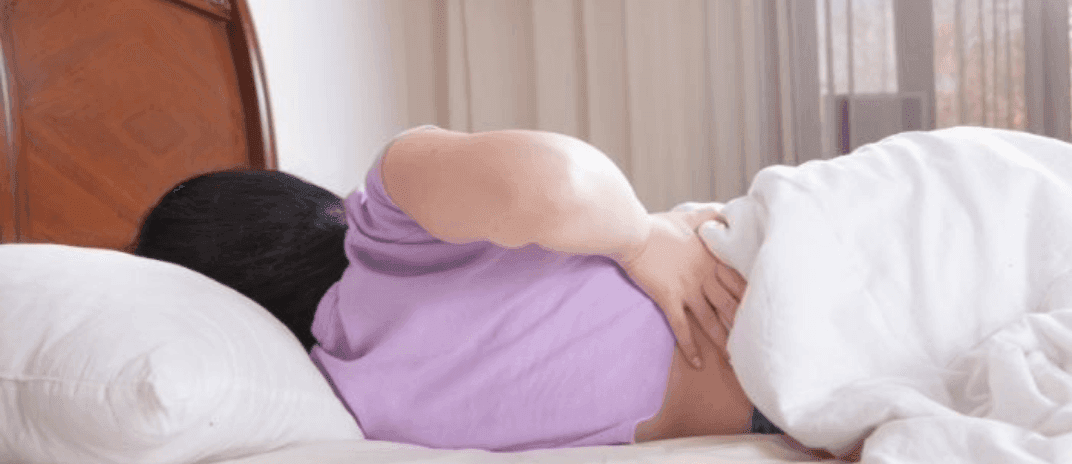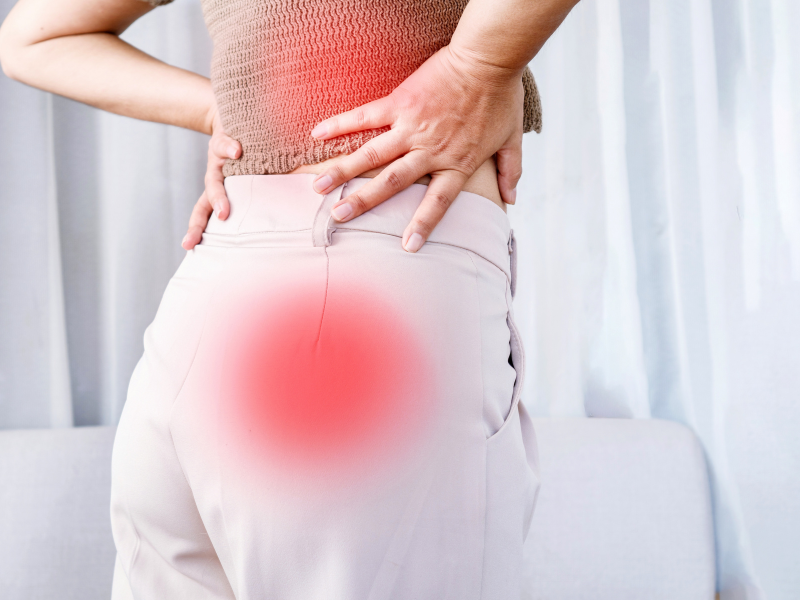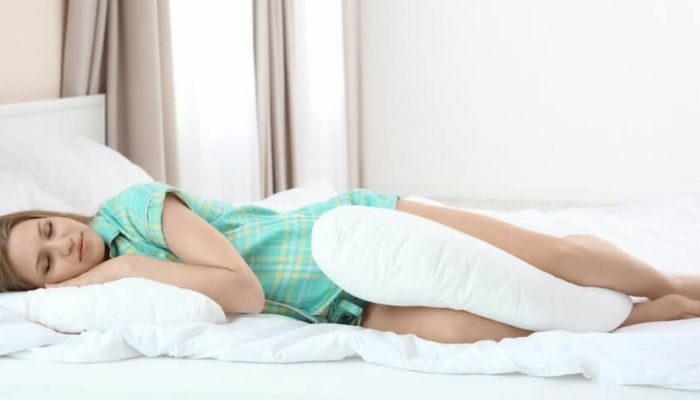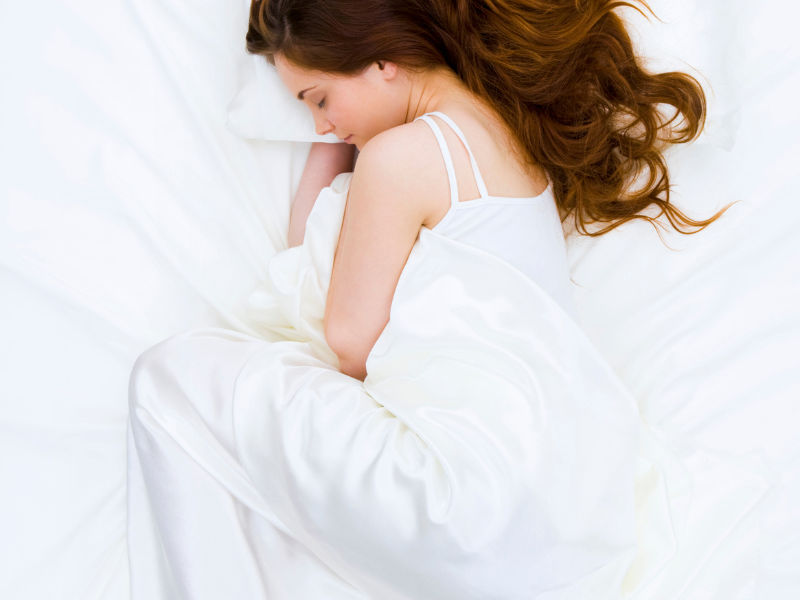


Sciatica is a nerve pain that can be described as feeling like a jolt or electric shock. It can make it difficult for you to get a full night’s sleep when one wrong move can send a shooting sensation from your lower back down to your legs. In that case, what is the best position to sleep in if you have sciatica?
In this article, we will take a look at what sciatica is, the best sleeping position and other ways to relieve sciatica pain.

Sciatica is a condition that is characterized by pain, weakness, or tingling in the leg. The pain starts from the sciatic nerve which worsens with bending, twisting, or coughing [1].
Sciatica usually happens when there is injury or pressure to the sciatica nerve. The most common cause of sciatica is a herniated or bulging lumbar disc.
Other common causes include:
A thing that remains common in all the causes is shooting pain along the sciatic nerve, typically on one side.
Sciatica symptoms may vary. Some describe the feeling of sciatica as mild tingling, dull ache, or a burning sensation. Others describe it to be a sharp pain that shoots down one side of the leg while leaving the other side feeling numb. The pain usually happens on one side of the body and may worsen with daily functions such as sitting, standing, sneezing, coughing, bending, twisting, or straining during a bowel movement [2].
When you sleep, the body becomes relaxed, and some important processes like pain regulation occur. But unfortunately, people suffering from sciatica can’t lie down properly due to intense pain. As a result, less sleep exacerbates the pain intensity, and research done in Korea provides a shred of evidence for it [3].
Sciatica flare-ups make good quality sleep like a dream. The pain is exacerbated in every second position you opt for.
Finding a comfortable position is more like a trial and error. However, through extensive surveys and research, we have come up with some positions to sleep in with sciatica.
So, let’s shed some light on them.
The first position is lying on your side. Lying on your side can help to reduce the discomfort and pain by reducing pressure on the sciatic nerve. When lying on your side, you want to ensure that you are using a pillow and placing it in between the knees. By using a pillow, it will help to ensure that your spine is properly aligned.
Lie with your knees bent, and place a pillow to support your head and another pillow between your knees, ensuring that your hips, knees, and ankles are stacked on top of each other [4].

In the supine position, all your body parts touch the bed or mattress. It is also considered as sleeping on your back. As a result, the entire body weight becomes distributed, and the spine becomes relaxed due to reduced pressure.
To achieve this sleeping position,
If the reason behind sciatica is spinal stenosis or a herniated disc, the fetal position will help you out. In this, the body is curved to obtain a C shape, due to which the narrowed space between the vertebrae and the spine opens up. As a result, the pain decreased to a huge extent.

To mimic the fetal position, follow the given guidelines correctly:
But some people claim that it worsens the pain. If you experience the same, try some other positions we discussed earlier.
Another best position to sleep with sciatica is putting a towel under your back and lying straight. It comes with two benefits:
As a result, there is no pressure on the compressed nerve, and you can easily enjoy the position.
To attain this position:
Now that we have discussed the best positions to sleep in Sciatica, let’s also talk about the positions you should avoid if you have sciatica.
Sleeping on your front or sleeping on your stomach is not recommended as it may stress your lower back and worsen sciatica pain, especially if you are using a soft mattress. You should also avoid any sleeping positions that may cause you to accidentally twist your spine or hips as this will aggravate the pain [5].
There is usually no treatment required for sciatica pain as it typically recovers on its own without any medical intervention.
If the pain feels too much for you to handle, you may consider taking over-the-counter pain relievers such as ibuprofen or Tylenol or try applying ice to the area and then applying heat for pain relief.
Where the sleep positions have been known to mitigate the pain significantly, here are some additional tips that can help alleviate sciatica symptoms [6], [7]:
Sciatica is undoubtedly a painful condition that can severely impact your sleep quality as it causes a shooting pain sensation. However, you can temporarily relieve sciatic pain by sleeping on your side with a pillow between your knees or on your back with a towel. It usually recovers without the need for medical intervention. However, if pain persists, it is better to consult the doctor.
For more ways to ensure that you get a good night’s sleep, try out the ShutEye® app. ShutEye not only helps you to track your sleep cycles, but it also offers relaxing sleep sounds — from guided meditations to white noise, to calm your mind and help you ease into a deep sleep.
Davis D, Maini K, Taqi M, et al (2024) Sciatica. In: StatPearls [Internet]. Treasure Island (FL): StatPearls Publishing. Available at: https://www.ncbi.nlm.nih.gov/books/NBK507908/
Derman, P. (2020) 3 Little-Known Tips for Sleeping with Sciatica [online]. Available at: https://www.spine-health.com/blog/3-little-known-tips-sleeping-sciatica
Gasnick, K. (2024) How to Sleep With Sciatica: 3 Positions for a Restful Night’s Sleep [online]. Available at: https://www.goodrx.com/well-being/sleep/how-to-sleep-with-sciatica
Harley Street Specialist Hospital (2024) How To Relieve Sciatica Pain In Bed [online]. Available at: https://hssh.health/blog/how-to-relieve-sciatica-pain-in-bed/
Harvard Health Publishing (2024) Preventing and coping with sciatica [online]. Available at: https://www.health.harvard.edu/pain/5-tips-for-coping-with-sciatica
Kim, S. H., Sun, J. M., Yoon, K. B., Moon, J. H., An, J. R., and Yoon, D. M. (2015) Risk Factors Associated with Clinical Insomnia in Chronic Low Back Pain: A Retrospective Analysis in a University Hospital in Korea. The Korean Journal of Pain, 28(2), 137 [online]. Available at: https://doi.org/10.3344/kjp.2015.28.2.137
Penn Medicine (n.d.) Sciatica [online]. Available at: https://www.pennmedicine.org/for-patients-and-visitors/patient-information/conditions-treated-a-to-z/sciatica